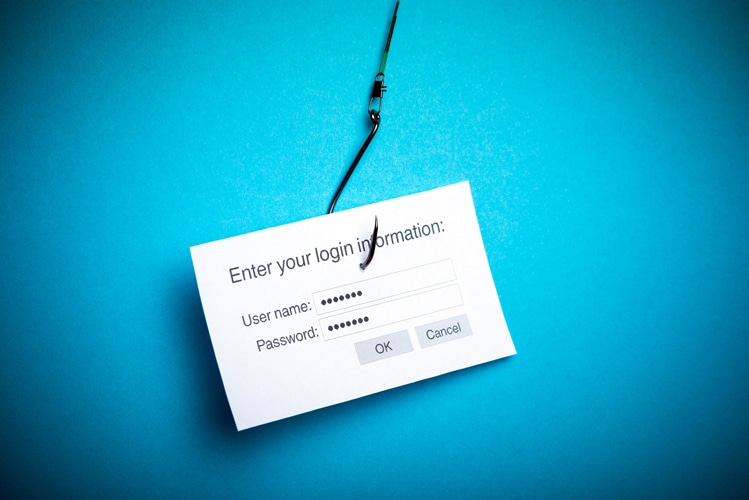Did you know that ensuring all users have a password manager can be a key to the success of any password policy? One of simplest yet most crucial aspects of cybersecurity is the management of usernames and passwords. This is due to the role unique credentials play in meeting various compliance requirements as well as in assisting with any forensics required after a cyberattack. Today we explore why unique credentials are vital to network security and how a password manager can bolster compliance efforts.

Enhancing Security With a Password Manager and Policy
1. Personal Accountability
Unique usernames allow for precise tracking of user activities within an organization’s network. When each user has a distinct username, it becomes significantly easier to determine who is responsible for specific actions, especially in the event of a security breach. This personal accountability is essential not only for internal audits but also for external investigations.
2. Minimizing Unauthorized Access
With a password manager, you promote unique passwords. This means the risk of unauthorized access is greatly reduced. Shared or generic passwords can lead to security lapses, where sensitive information might be accessed by unauthorized personnel. Unique, strong passwords make it more difficult for potential cyber attackers to gain entry into the system, as the complexity and unpredictability of these passwords are enhanced.
3. Controlling Access
In many organizations, information is not meant to be accessed by everyone. You can control this access within the password manager. Unique usernames and passwords facilitate effective role-based access control (RBAC) systems, ensuring users access only the data and systems necessary for their roles. This not only protects sensitive information but also reduces the risk of accidental data exposure by limiting the number of people who can view certain data.
Supporting Compliance and Regulatory Requirements
1. Compliance with Data Protection Regulations
Many privacy and security regulations, such as the General Data Protection Regulation (GDPR) and the Health Insurance Portability and Accountability Act (HIPAA), require that personal data be safeguarded with adequate security measures. Unique usernames and passwords are fundamental to these protocols, as they are considered essential safeguards against unauthorized data access.
2. Auditing and Reporting
Regulatory bodies often require detailed logs of data access and system interactions. Unique credentials ensure that logs accurately reflect individual user activities, facilitating compliance with laws that mandate regular audits, such as the Sarbanes-Oxley Act (SOX). Accurate logging helps organizations quickly address potential compliance issues, reducing the risk of penalties.
3. Enhancing Security Frameworks
Standards such as ISO 27001 emphasize the importance of managing user access effectively. Implementing unique usernames and passwords is a key control in these standards, which helps organizations maintaintheir information security management systems (ISMS) and ensures continuous improvement in security practices.
Best Practices for a Password Manager
Implement Strong Password Policies: Organizations should enforce policies requiring complex passwords that include a mix of letters, numbers, and symbols, and mandate regular password changes. ThrottleNet recommends using a passphrase as these are easier to remember while providing the requirements of a complex password. Passphrases can include movie lines, song lyrics or aspirational statement such as “Today is going to be Awesome!”. Most password managers will give you the option to randomly choose a passphrase.
Use Advanced Authentication Methods: Adding layers of security through multi-factor authentication (MFA), where users must provide additional verification beyond just the password, can significantly enhance the effectiveness of unique passwords.
Educate Employees: Regular training sessions should be conducted to educate employees about the importance of cybersecurity practices, including the use of unique usernames and passwords. It also helps to train your users around how to create complex passwords or passphrases that are easy to remember while being complex in nature.
Use a Password Vault: Given the significant number of passwords one has to remember – especially when varying them online and at work – using a password vault is almost a necessity. When asked about this, the question always comes up – which is the most secure? The answer is, all of them have been breached at a point in time and are equally secure. These organizations have also introduced additional security controls and are still better than managing your passwords in an Excel spreadsheet.
Regularly Audit and Update Access Controls: Continuously monitor and review access controls to ensure that they are effective and that users have appropriate access rights based on their current roles.
The use of unique usernames and passwords is a fundamental security measure that supports both organizational security and compliance with various regulatory requirements. By implementing and managing these credentials with a password manager you can be more effective. Organizations can protect sensitive information, ensure accountability, and significantly reduce the risk of data breaches, thereby maintaining their reputation and trustworthiness in the digital landscape.

Chris Montgomery
ThrottleNet Sales Director
[email protected]



